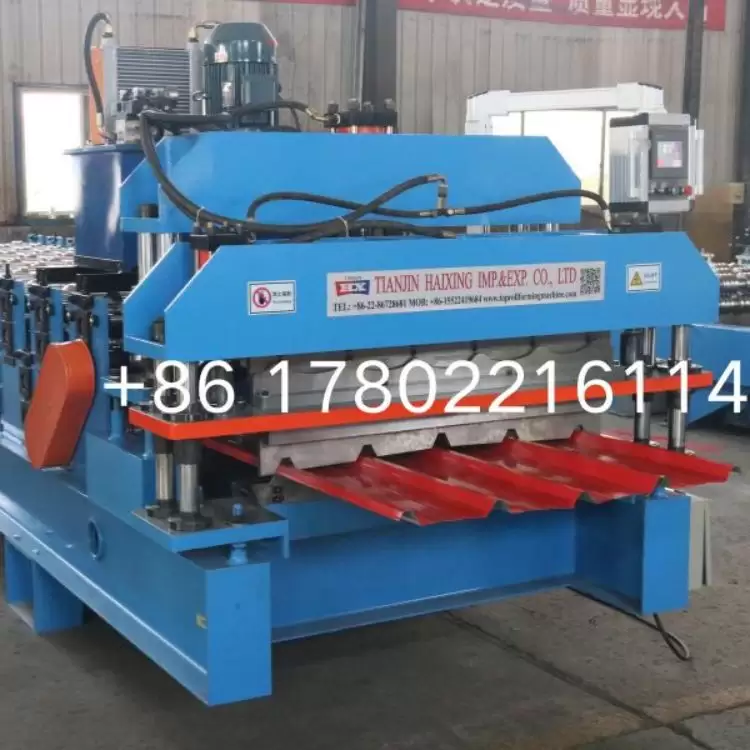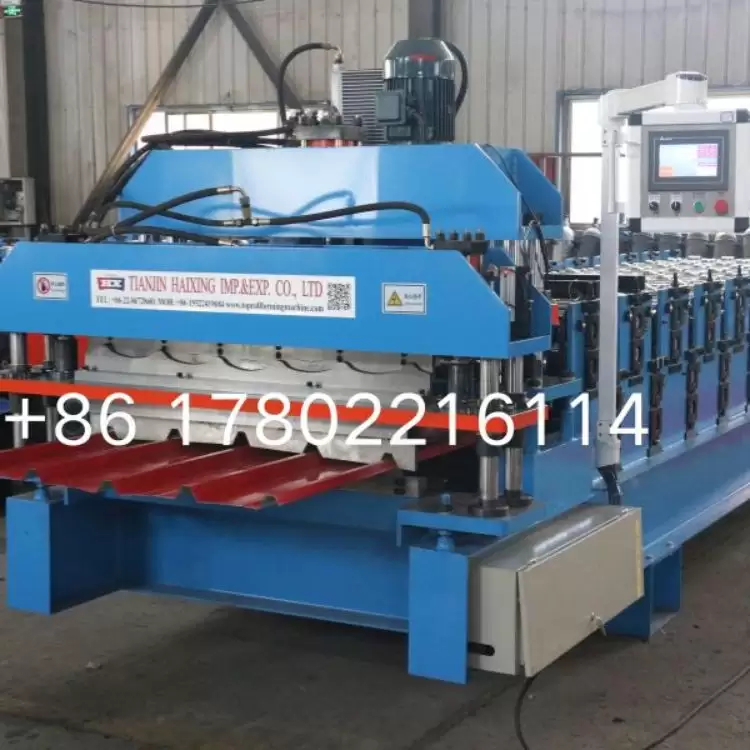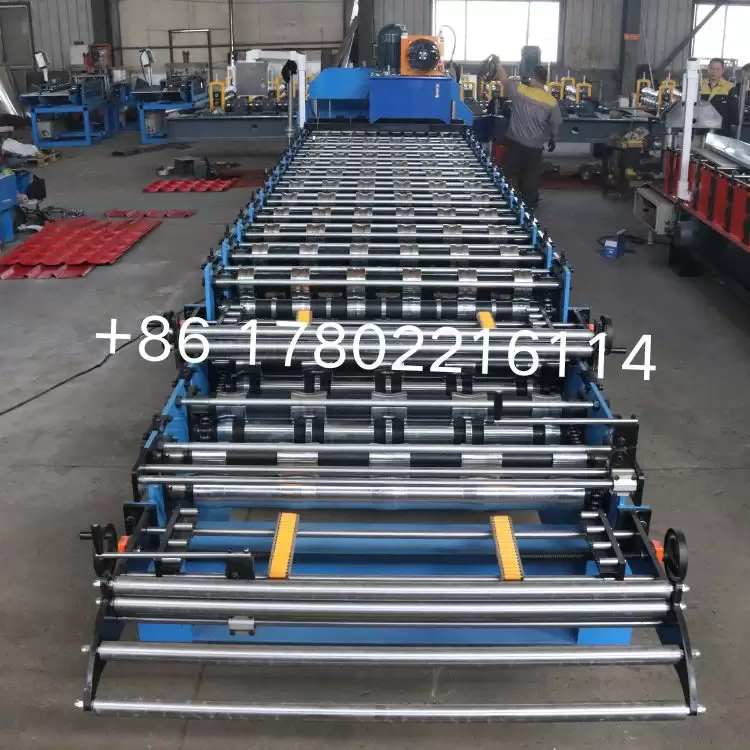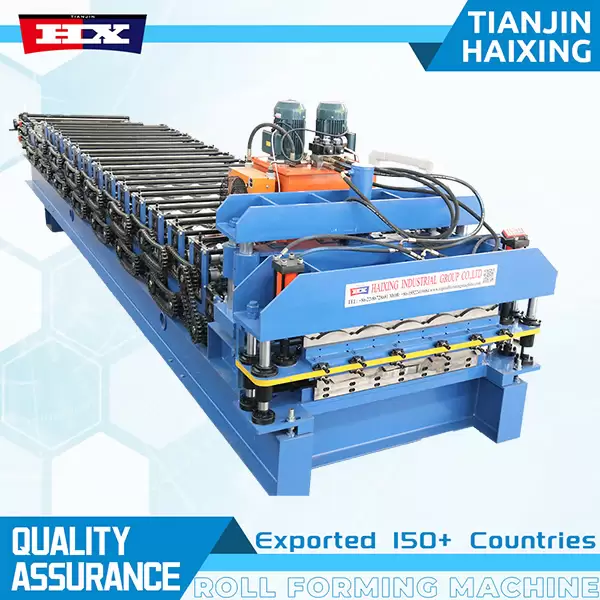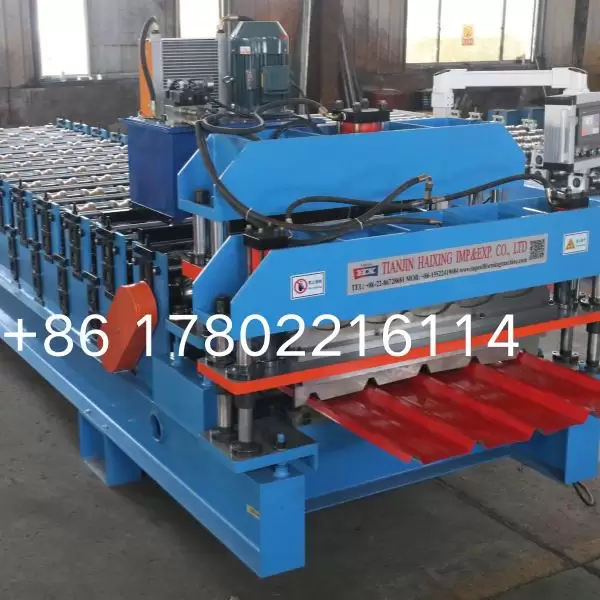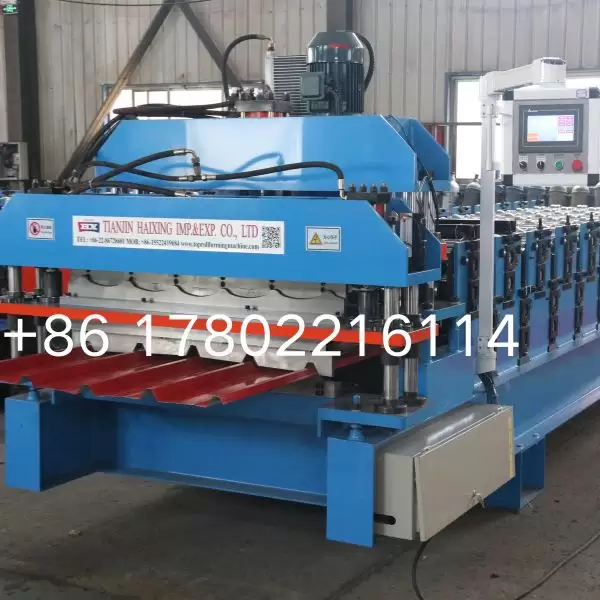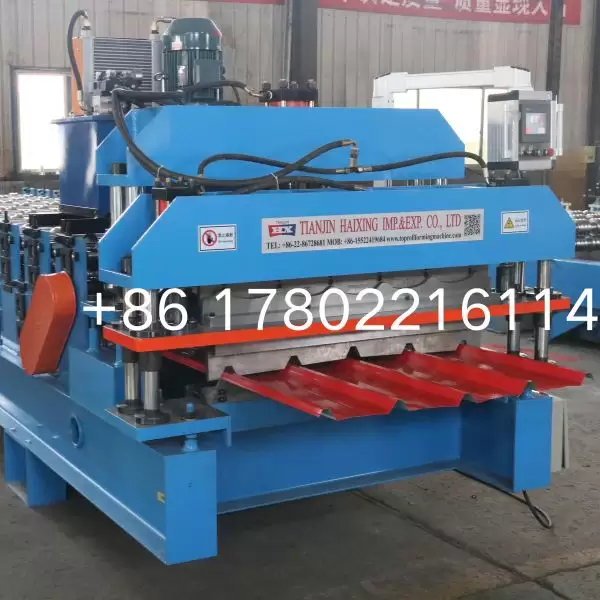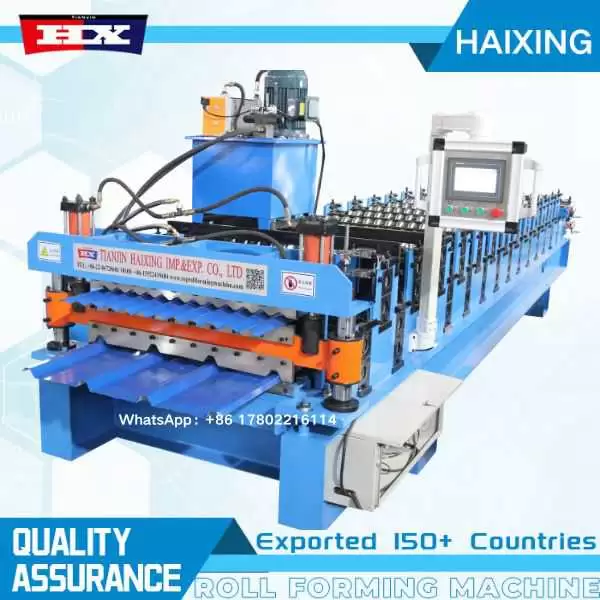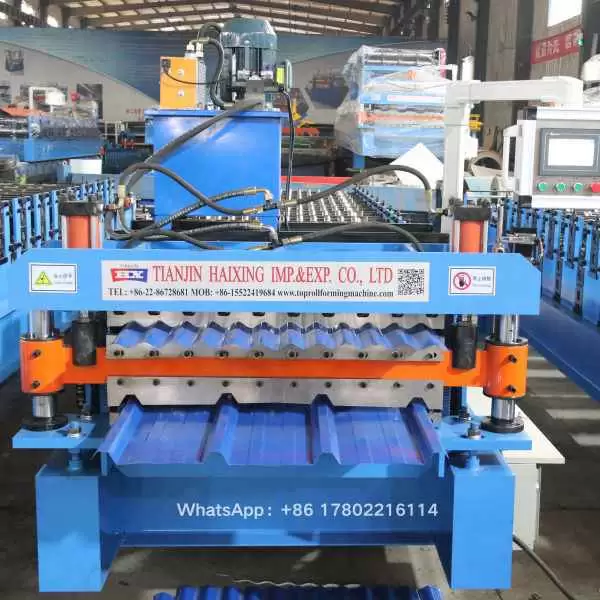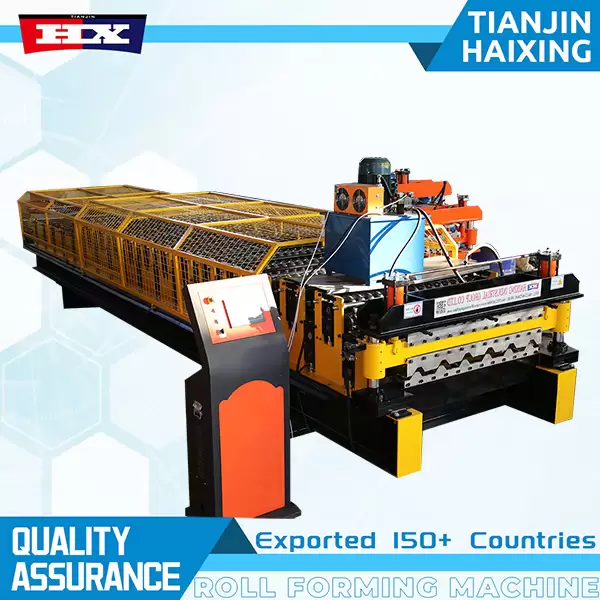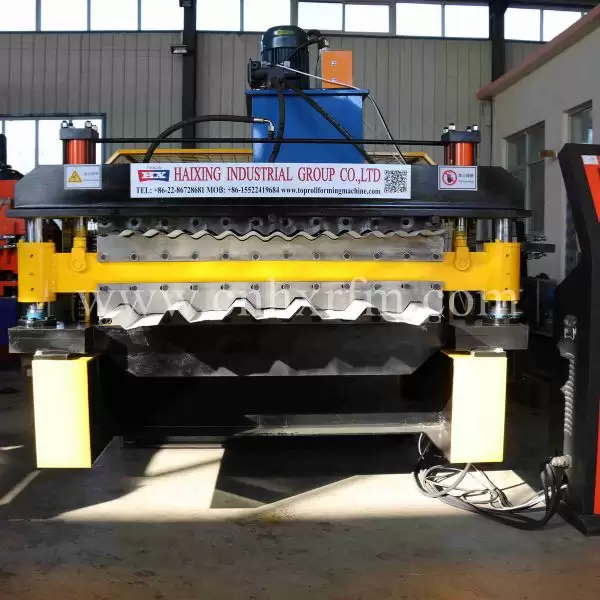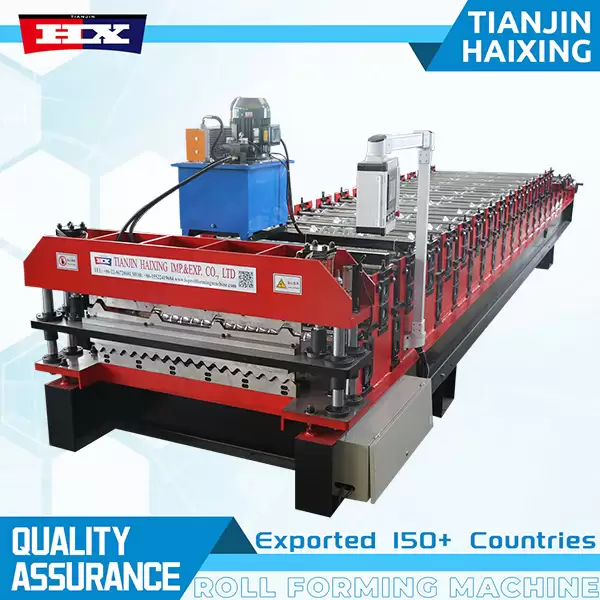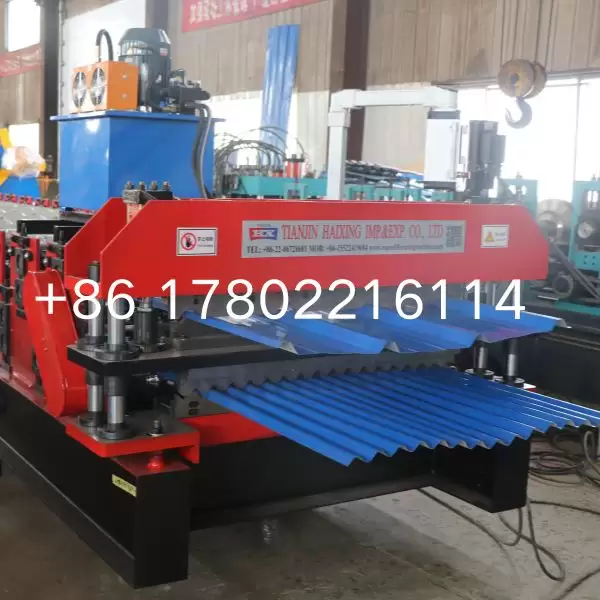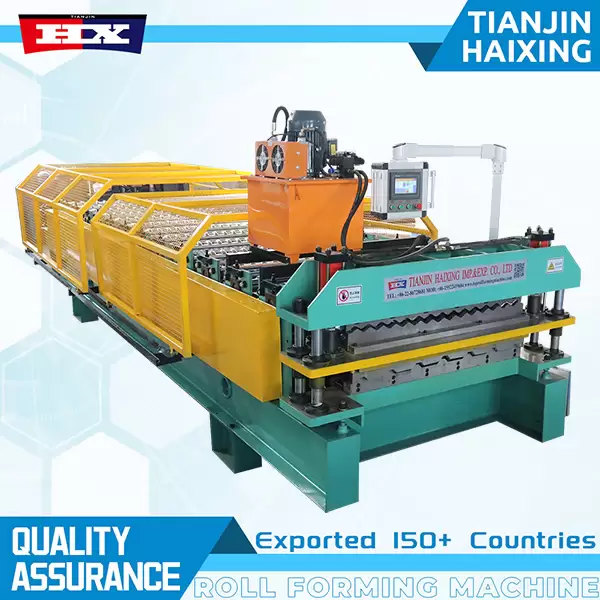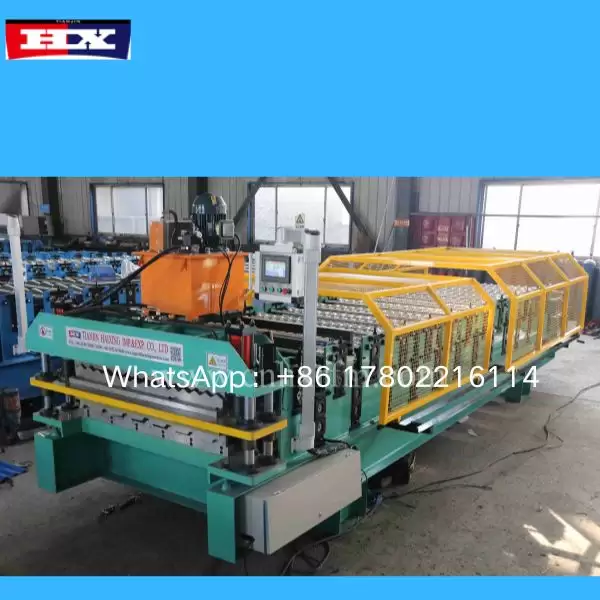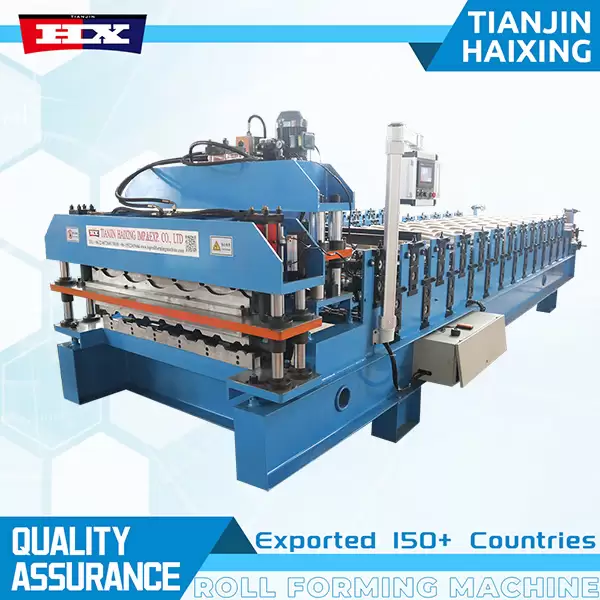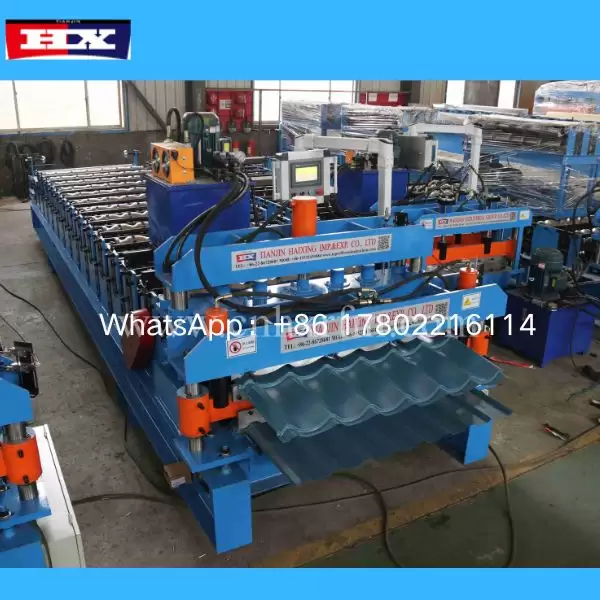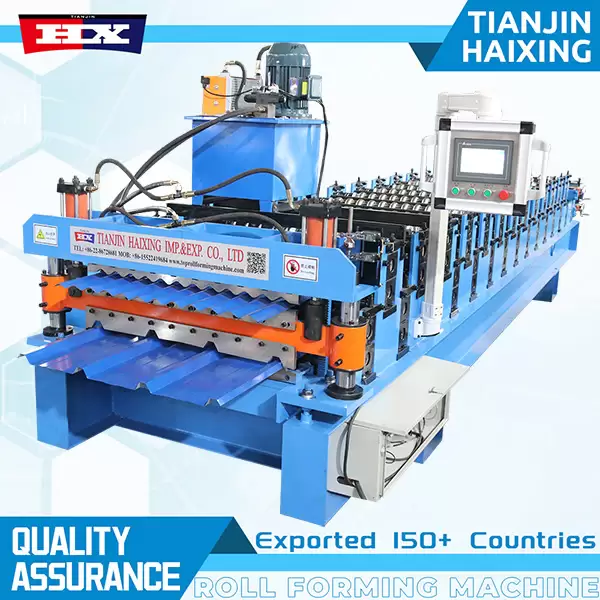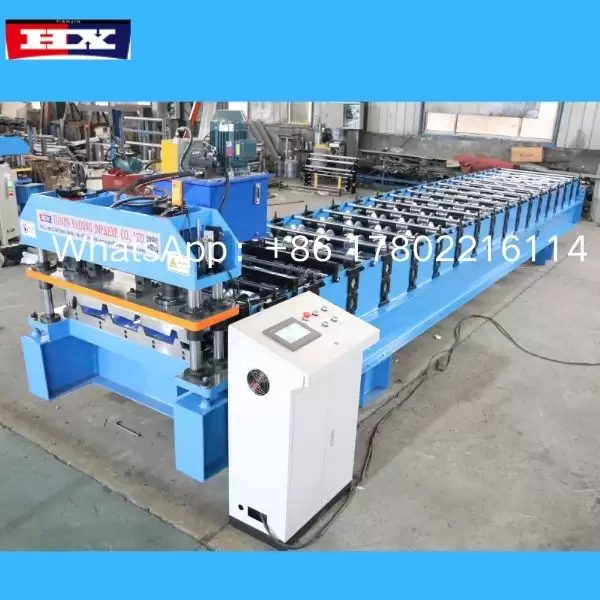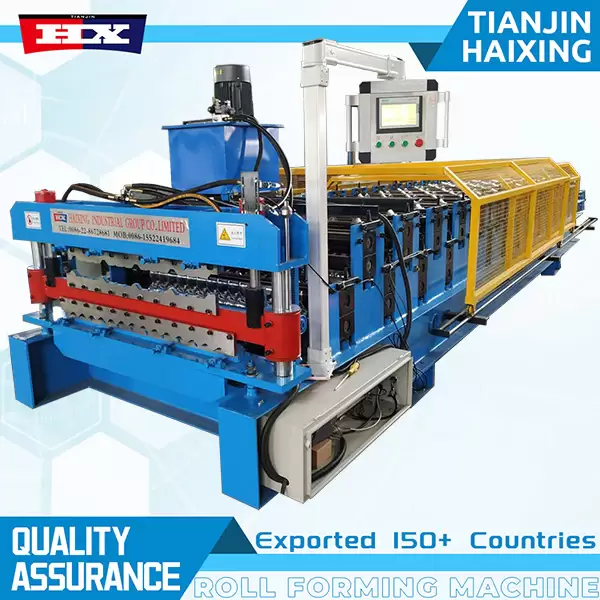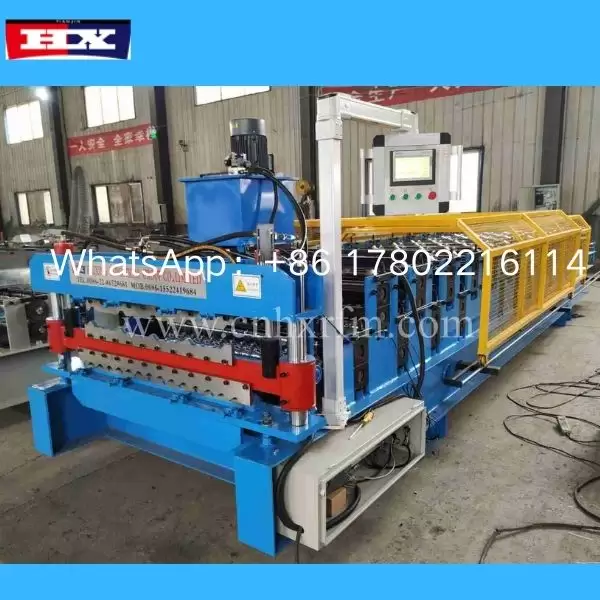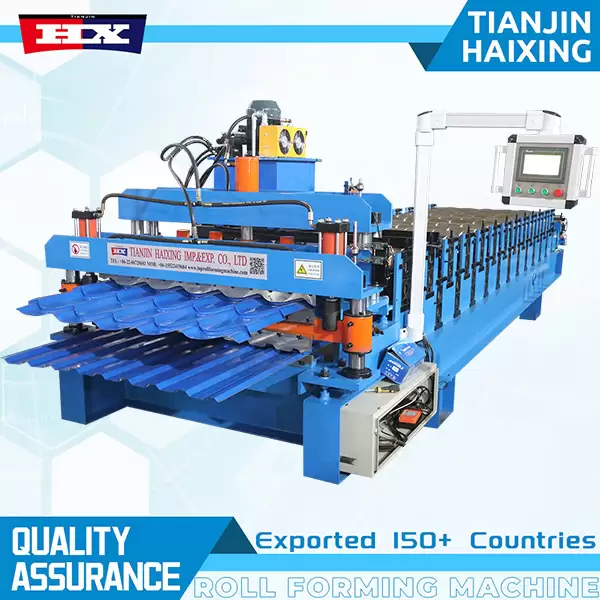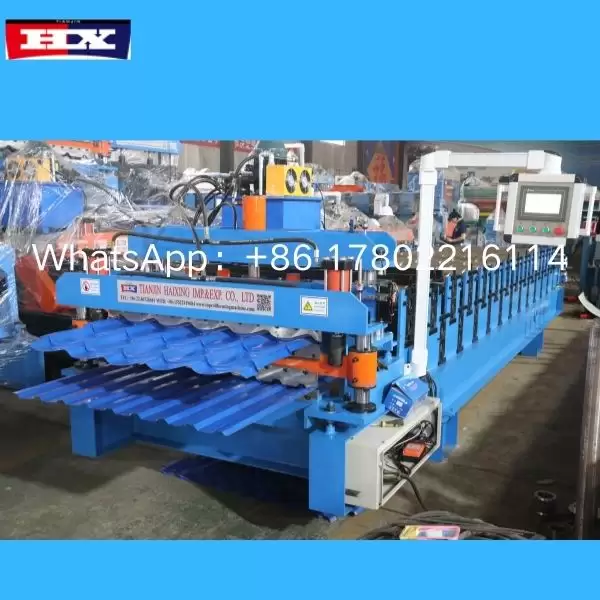roll forming companies
Roll forming companies specialize in designing and manufacturing machinery that shapes metal coils into continuous profiles used in construction, automotive, and industrial applications. These firms offer solutions ranging from simple panel lines to complex custom systems, ensuring high efficiency, consistent quality, and adaptability to diverse market needs. With advanced technology and industry expertise, roll forming companies play a key role in modern metal processing and structural production.
Machine Details
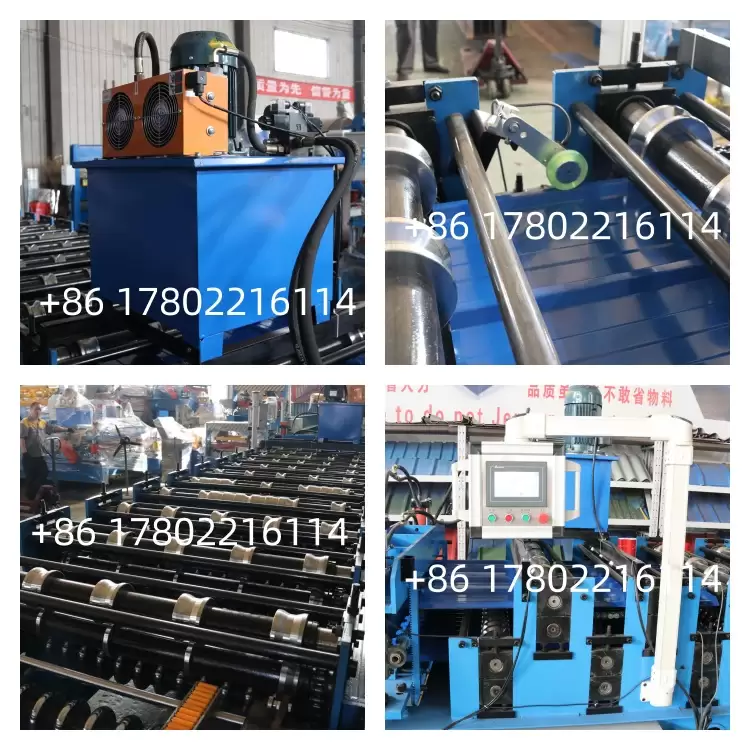
r panel roll former glazed
| Formed Material |
GI/GL, PPGI/PPGL |
| Thickness |
0.3-0.8mm |
| Width |
914mm(customized) |
| Decoiler |
Manual decoiler(will give you as free) |
| Roller station |
15+15 rows (As your requirement) |
| Diameter of shaft |
70mm solid shaft |
| Material of rollers |
45# steel, forging with chromium plate 0.05mm |
| Cutter |
Cr12 Mov quenched treatment 58℃-62℃ |
| Power |
7.5+5.5KW |
| Control system: PLC |
Automatic production of the whole machine. Can set batch, length, quantity, etc. |
| Control system Language |
English, Spanish, etc.(Support multiple languages) |
| Voltage |
380V 50Hz 3Phase (As your requirement) |
| Forming Speed |
10-15 m/min (The speed depends on the shape of the tile and the thickness of the material.) |
Why Choose Us
With over 28 years of industry experience and more than 1,200 successful installations worldwide, we are a trusted name in roll forming technology. Our machines are built to meet CE and ISO standards, ensuring consistent quality and safety. For added peace of mind, we offer optional warranty extensions of up to 18 months. Comprehensive on-site installation and hands-on training services are also available to ensure efficient and reliable operation.
About Us
Haixing Tianjin is a leading provider of advanced cold forming solutions, delivering high-precision roll forming machines designed for the roofing and construction industries. With more than 28 years of experience, we have established a strong global presence, serving customers in over 150 countries. Our CE and ISO certifications reflect our commitment to quality and safety, while our engineering expertise ensures reliable performance and durable equipment that meets international standards across diverse markets.
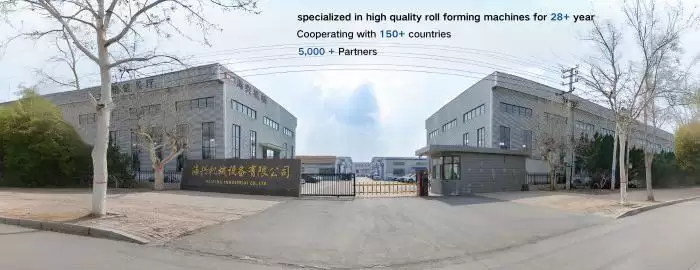
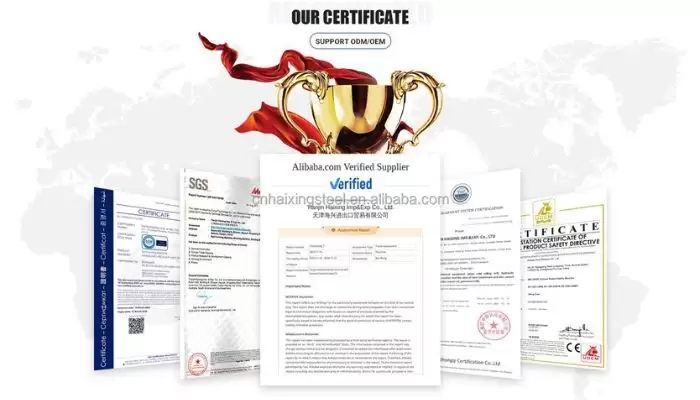
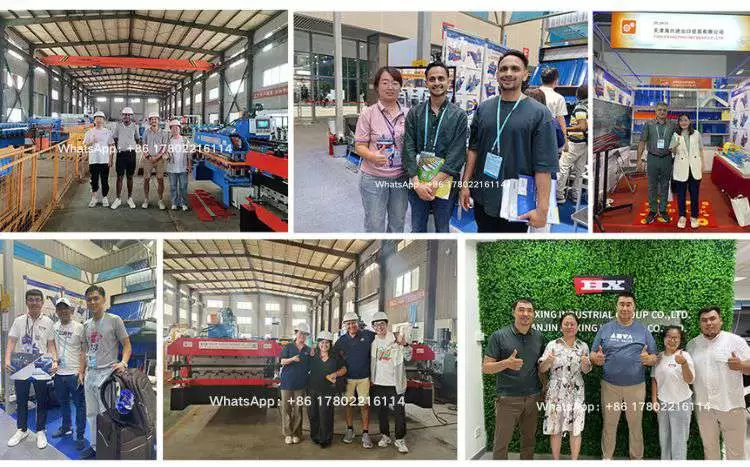
FAQ:
Q: What types of roof panel forming machines do you mainly produce?
A: We focus on metal roof panel roll forming machines, including vertical lock seam panels, corner panels, corrugated panels, antique glazed tiles and other 20+ types of equipment, supporting customized molds.
Q: What raw materials are suitable for the machine? Thickness range?
A: Mainly processed galvanized sheets, color-coated sheets, aluminum alloy sheets, material thickness can usually be adjusted according to demand.
Q: What is the production speed of the equipment?
A: The standard model speed is 10-15 meters/minute, and the high-end model can reach 20 meters/minute, depending on the complexity of the pattern.
Q: Can you provide a trial video or sample?
A: We can provide real-time trial videos and molded samples for delivery. If you need on-site inspection, please make an appointment to visit the factory.
Q: Is the equipment fully automatic or semi-automatic? How many people are needed to operate it?
A: Standard PLC fully automatic control system, only 1-2 people are needed to operate (feeding + monitoring), and high-end models can be connected to automatic feeding racks.
Q: What is the material of the mold? What is the service life?
A: The mold is made of Cr12MOV mold steel, surface quenching treatment, and the service life can reach more than 500,000 extended meters under normal use, and it supports renovation and maintenance.
Q: Does it support customized version? How long is the mold development cycle?
A: Support customized version according to drawings, the mold development cycle is about 20-30 days (need to confirm the complexity of the drawings), and a 3D design plan can be provided first.
Q: Can the equipment voltage and frequency adapt to our country?
A: Support global voltage customization (220V/380V/415V, 50Hz/60Hz), and will be debugged according to the customer's national standards before leaving the factory.
